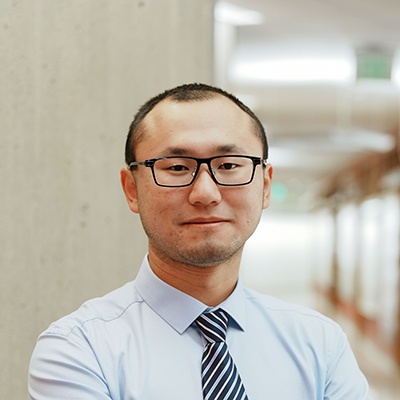Wenhao Gao
Assistant Professor (Starting January 2027)
Contact
Email: gaowh19@gmail.com
Research Website | Publications
About
Wenhao Gao is an incoming Assistant Professor in the Department of Chemical and Biomolecular Engineering and a member of Penn’s new data science initiative, Innovation in Data Engineering and Science (IDEAS). He earned his Ph.D. in Chemical Engineering at MIT, where he focused on integrating generative AI with chemical synthesis to accelerate the design of novel functional molecules. Prior to his Ph.D., he received his B.S. in Chemistry from Peking University and his M.S.E. in Chemical and Biomolecular Engineering from Johns Hopkins University. Wenhao’s research focuses on using computational techniques to advance molecular discovery, encompassing machine learning, generative modeling, molecular modeling, and molecular design, with applications in therapeutics, sustainability, and energy. He is currently a postdoctoral researcher at Stanford University and will begin his faculty appointment at Penn in January 2027. He will start recruiting students through the December 2025 application cycle, as well as postdocs, interested in building new AI frameworks for molecular discovery.
Research Interest
The discovery of new functional molecules with properties tailored to specific applications is a fundamental challenge in chemical science and engineering, essential for addressing societal issues such as health, energy, and sustainability. Traditionally, this process has relied on labor-intensive trial and error or deep domain expertise, making it expensive, unpredictable, and difficult to scale. Recent advances in computational technologies, especially deep learning, hold transformative potential to enable systematic and scalable molecular discovery. The Gao Research Group sits at the intersection of chemical engineering, computer science, and chemistry, aiming to reimagine chemical discovery in the era of AI by formulating problems in molecular science in ways amenable to modern computational approaches and developing algorithms to solve them. Our current research focuses on: (1) developing effective and efficient algorithms for the inverse design of small molecules, macromolecules, and materials with targeted properties; (2) building large-scale, pre-trained models tailored to molecular systems to improve structure–property relationship modeling; and (3) applying these methods to address critical challenges in therapeutic discovery, sustainable chemistry, and clean energy. A long-term goal of the group is to systematize and accelerate the design of both chemical products and processes.
Cellular and Biomolecular Engineering; Energy and Environmental Engineering; Molecular Simulation and Thermodynamics
Educational Background
Ph.D.: Massachusetts Institute of Technology (2025)
M.S.E.: Johns Hopkins University (2020)
B.S.: Peking University (2018)
Awards
2025 Forbes 30 Under 30, Asia: Healthcare&Science
2025 CAS Future Leaders
2024 ACS CINF, The Scientific Excellence Award
2024 D.E. Shaw Research Doctoral Fellowship
2023 Google PhD Fellowship
2022 Takeda Fellowship

